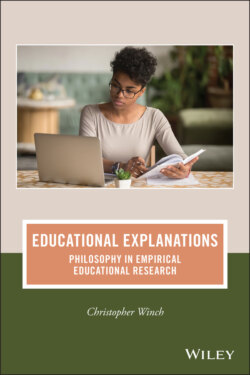Читать книгу Educational Explanations - Christopher Winch - Страница 29
Difficulties Related to Context and Identity
ОглавлениеRelated objections that occur repeatedly in the work of Andrew Davis (e.g. 1995, 2015) concern the complexity and stability of educational phenomena. The context-dependent nature of educational phenomena has already been remarked on in relation to Barrow’s work. However, Davis also claims that transferability is also a major problem. Transferability applies to knowledge and know-how. Thus something learned in one context might not be applied in another (e.g. formal mathematics in the classroom applied to practical situations in household budgeting). However, the evidence for non-transferability is weak and if it were largely true, would jeopardise the rationale for much formal education. The second part of the objection, that concept-dependent educational entities like schools have very weak criteria of identity and cannot thus be meaningfully spoken about outside very specific contexts is, perhaps, a more serious objection.
Certainly, if the criteria for identity of such things as schools or teaching methods had to be as robust as those for spatio-temporal objects then the objection would have some force. However, there is no reason to suppose that this is so. We do not find difficulty in talking about the same school or the same teaching method over a period of time, either in ordinary lay discourse or in a research context. Nevertheless, the objection does point to something important, namely that we need to take care in elucidating criteria of identity when talking about educational practices and institutions. This takes care of objection 4.
